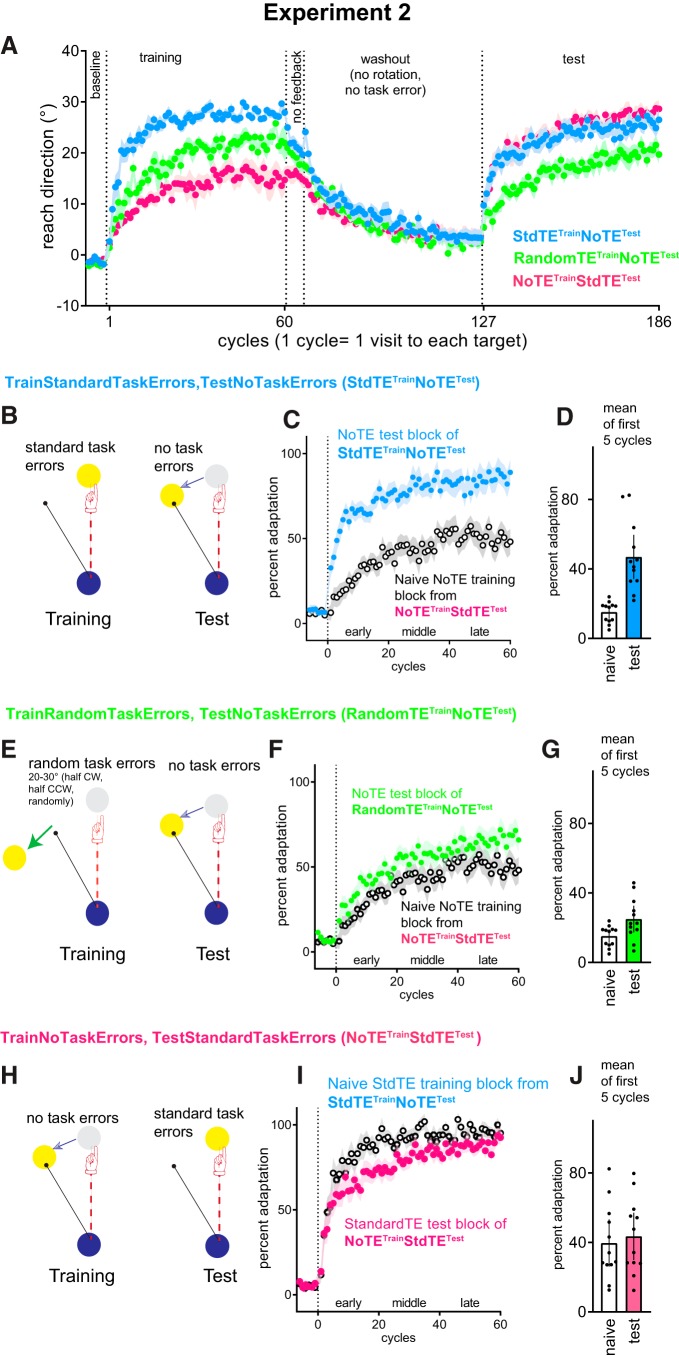Figure 2.
Experiment 2 showed that improved adaptation requires a history of adaptation to task errors. A, Mean reach directions for all cycles for all groups (groups experiencing CW rotations sign-flipped to collapse across CW and CCW groups). B, The StandardTETrainNoTETEST group experienced standard task errors at training, but no task errors at test. E, The RandomTETrain NoTETEST group experienced random task errors at training but no task errors at test. H, The NoTETrainStdTETEST group experienced no task errors at training, and standard task errors at test. All participants were deprived of task errors (i.e., had the no-task error manipulation) at washout. C, F, I, Estimated marginal mean ± SEM adjusted for prerotation percent adaptation, where test phase adaptation is compared with naive controls (open symbols) experiencing the same task error manipulation. A history of adapting to standard task errors, but not adapting to random task errors, improved subsequent adaptation (C,F). In contrast, adaptation was unimproved without a history of task errors (I). D, G, J, Mean ± 95% CI of mean percent adaptation averaged from the first 5 cycles.

